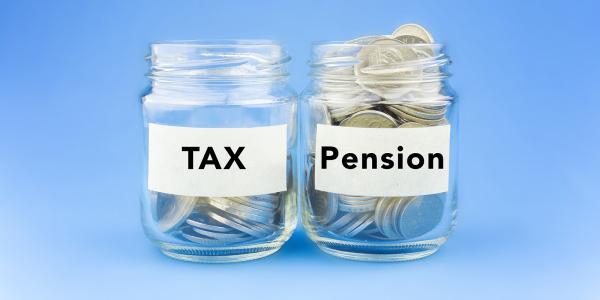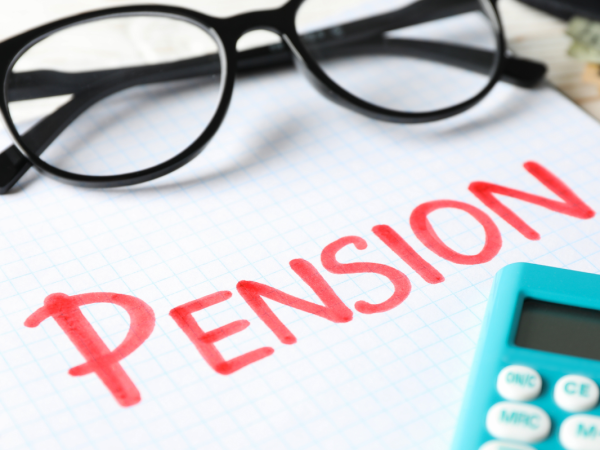Tax on pension income
On this page we look at what pension income is taxable and provide an overview of how it is taxed.

Content on this page:
Typical types of pension income
Some typical types of pension income you might have are:
- occupational pensions – income from these pensions is almost always taxable;
- personal pensions – income from these pensions is almost always taxable;
- state pension – this pension income is taxable, even though it is paid without tax being taken off before you get it;
- state pension lump sums arising as a result of deferral of a pre-6 April 2016 state pension – the tax position is complex;
- pension credit – this is not taxable.
The tax system has many exceptions, so you should also look at our page What pension income is tax-free?.
How tax is paid on pension income
State pension
As mentioned above, the state pension is taxable but has no tax deducted at source – see How tax is collected on the state pension. We look separately at state pension deferrals and tax on state pension lump sums.
Private pensions
The information that follows relates to private pensions – all UK pensions (occupational and personal) other than the state pension.
Regular pension income
If you receive a regular income from your private pension, the income you receive is taxable on you.
Your income will be taxed before you get it, under PAYE. HMRC tell your pension payer how much your tax allowance is and how much tax to take off your pension before paying it to you. HMRC send you a coding notice, also known as form P2.
You only pay tax on the balance of your pension after tax allowances are taken off. This is the same system applied to wages or salary for employees.
The main problem when taking pension income is that your PAYE tax codes can get confusing. HMRC might get them wrong initially when you start to draw a pension, either from the state or privately, and you might also be continuing to work, so you have several sources of income. HMRC make assumptions about your income to work out your PAYE codes, so you need to check them carefully. See our page PAYE on pensions.
Pension lump sums/flexible income
You might also be able to take lump sums or irregular amounts from a pension, rather than a regular pension income. If you do this, you might find there are added complications with how PAYE taxes the money you take out.
We discuss these in our page Pensions flexibility.
Tax on pensions after death
You will note that in the overview we have that personal and occupational pensions are almost always taxable.
However, it is sometimes the case that drawing income from these pensions is not taxable if the pension is inherited.
For information about what happens to your pension after death, and how it is taxed, see our page Pensions and life assurance on death.
Arrears of private pensions
If a private pension company realises you have not been paid enough pension for previous years and makes a back-payment to you, they will normally deduct tax from that payment in the tax year it is paid.
If the back-payment pushes you into a higher tax band, this may mean that you are paying more income tax than if you had received the correct level of pension in the tax years that the payments relate to.
In this case, HMRC say in their manuals on GOV.UK that you can ask them to spread the payment back to the relevant tax years and recalculate your tax position.
The recalculation works in a similar way to the calculation of state pension arrears. However, for private pensions, there is no four-year ‘look back’ limit as there is with the state pension. HMRC’s guidance says they will recalculate the position for all tax years that the payment relates to.
If you receive a payment of arrears from a personal or occupational pension and would like HMRC to spread the payment back and recalculate your tax position, you will need to contact them to request this – the process is not automatic. Your pension provider should be able to provide you with a statement setting out the tax years to which the back-payment relates.
Compensatory interest
If the pension provider pays you interest as compensation for the pension error, then this would be taxable in the year of payment and could not be spread back. Check any letter you receive from your pension provider to make sure you are clear what part of the payment is back-payment of pension, and what part is interest.
You can read more about how interest is taxed on our page Tax on savings income. However, you should note that interest paid on compensation is different from interest from banks and building societies because it has 20% tax deducted from it before it is paid to you. Depending on your overall tax position, you might have extra tax to pay (for example, if you are a higher rate taxpayer) or you might be able to claim a tax refund.
Overseas pensions
If you have a pension from overseas, it is important to establish what the UK tax position is in the first instance. See our page UK tax on overseas pensions.



